Reasons to be Cheerful by Paul Gorman
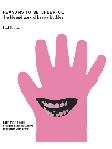 I probably won’t read from it on Saturday, but a couple of years ago I wrote the entry on Elvis Costello’s 1979 album Armed Forces in Continuum’s 33 1/3 series. One book I wish had existed while I was writing is Paul Gorman’s Reasons to Be Cheerful (Adelita), an inspiring, informative, and copiously illustrated retrospective of the work of British graphic artist Barney Bubbles. Bubbles – born Colin Fulcher – created the innovative ‘look’ of Costello’s albums, singles, posters, ads and other ephemera from 1977 until his death in 1983. At his most imaginative, Bubbles treated the medium of the record cover as an object in its own right, experimenting with inside-out sleeves (the “Accidents Will Happen” seven-inch), pre-worn or damaged effects (Get Happy!), and elaborate die-cut arrangements beyond the traditional gatefold (Armed Forces itself), commenting on pop music’s commodity status as surely as Costello’s image and songs. These examples only scratch the surface of Bubbles’s work, which Gorman tracks from his art-school roots creating light shows for post-Floyd psychedelic acts (Hawkwind, Quintessence) through his punk-and-new-wave-era role as house designer for Stiff Records (Ian Dury, The Damned) and Costello’s short-lived F-Beat label – and, toward the end, as pioneering director of the Specials’ “Ghost Town” video. Though his name isn’t as well known as that of Factory Records’ Peter Saville (who contributes an appreciative foreword), Bubbles exerted a massive, under-acknowledged influence on the material culture surrounding popular music as it entered the post-modern age.
I probably won’t read from it on Saturday, but a couple of years ago I wrote the entry on Elvis Costello’s 1979 album Armed Forces in Continuum’s 33 1/3 series. One book I wish had existed while I was writing is Paul Gorman’s Reasons to Be Cheerful (Adelita), an inspiring, informative, and copiously illustrated retrospective of the work of British graphic artist Barney Bubbles. Bubbles – born Colin Fulcher – created the innovative ‘look’ of Costello’s albums, singles, posters, ads and other ephemera from 1977 until his death in 1983. At his most imaginative, Bubbles treated the medium of the record cover as an object in its own right, experimenting with inside-out sleeves (the “Accidents Will Happen” seven-inch), pre-worn or damaged effects (Get Happy!), and elaborate die-cut arrangements beyond the traditional gatefold (Armed Forces itself), commenting on pop music’s commodity status as surely as Costello’s image and songs. These examples only scratch the surface of Bubbles’s work, which Gorman tracks from his art-school roots creating light shows for post-Floyd psychedelic acts (Hawkwind, Quintessence) through his punk-and-new-wave-era role as house designer for Stiff Records (Ian Dury, The Damned) and Costello’s short-lived F-Beat label – and, toward the end, as pioneering director of the Specials’ “Ghost Town” video. Though his name isn’t as well known as that of Factory Records’ Peter Saville (who contributes an appreciative foreword), Bubbles exerted a massive, under-acknowledged influence on the material culture surrounding popular music as it entered the post-modern age.
Squeezed: What You Don’t Know about Orange Juice by Alissa Hamilton
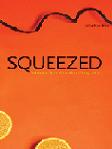 Were you aware that, since 1985, most of the orange juice Americans drink has come from neither Florida or California but Brazil, which nearly all of its output to us as concentrate – in part because Brazilians themselves hardly drink the beverage? This is only one of the revelations of Alissa Hamilton’s Squeezed: What You Don’t Know About Orange Juice (Yale), which I encountered, more or less by luck, while trying to track citrus sinensis (the sweet orange) through its appearances in poems by Wallace Stevens, Frank O’Hara and Kenward Elmslie. Hamilton’s quixotic history hasn’t helped directly with that project, but the stories she tells have turned out to be fascinating in their own right. The “freshness” and “wholesomeness” supposedly contained in that glass beside your breakfast plate turn out to be ideological products as much as agricultural ones, the result of negotiations among government, consumer advocates, and the citrus industry over the labeling and marketing of various forms of frozen, pasteurized or reconstituted juice, not to mention spokeswoman Anita Bryant’s housewifely appeals to “come home to the Sunshine Tree.” Buttressed by a meticulous reading of the FDA’s 1961 hearings on “Definitions and Standards of Identity” for orange juice, Squeezed isn’t literary in intent, but its expression of the strangeness and complexity of a substance most of us barely think about is inadvertently poetic.
Were you aware that, since 1985, most of the orange juice Americans drink has come from neither Florida or California but Brazil, which nearly all of its output to us as concentrate – in part because Brazilians themselves hardly drink the beverage? This is only one of the revelations of Alissa Hamilton’s Squeezed: What You Don’t Know About Orange Juice (Yale), which I encountered, more or less by luck, while trying to track citrus sinensis (the sweet orange) through its appearances in poems by Wallace Stevens, Frank O’Hara and Kenward Elmslie. Hamilton’s quixotic history hasn’t helped directly with that project, but the stories she tells have turned out to be fascinating in their own right. The “freshness” and “wholesomeness” supposedly contained in that glass beside your breakfast plate turn out to be ideological products as much as agricultural ones, the result of negotiations among government, consumer advocates, and the citrus industry over the labeling and marketing of various forms of frozen, pasteurized or reconstituted juice, not to mention spokeswoman Anita Bryant’s housewifely appeals to “come home to the Sunshine Tree.” Buttressed by a meticulous reading of the FDA’s 1961 hearings on “Definitions and Standards of Identity” for orange juice, Squeezed isn’t literary in intent, but its expression of the strangeness and complexity of a substance most of us barely think about is inadvertently poetic.
Franklin Bruno reads on 12/12 at Bushwick Reading Series.

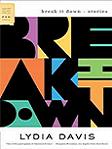
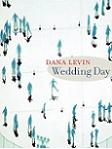
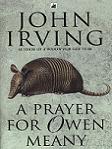
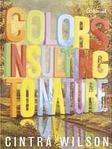 Colors Insulting to Nature by Cintra Wilson is the most entertaining thing I’ve read in the last year. It’s hilarious and tragic and addictive. I would stay up reading it until 3 in the morning, spend my lunch hour reading it instead of eating, and come home from work and read it until I could no longer delay eating dinner. There’s a lot of fame-obsessed culture commentary which drags a bit at times, but which is always relevant. The central character is at once ridiculous and extremely relatable. I wish I were capable of writing something even half as witty as this.
Colors Insulting to Nature by Cintra Wilson is the most entertaining thing I’ve read in the last year. It’s hilarious and tragic and addictive. I would stay up reading it until 3 in the morning, spend my lunch hour reading it instead of eating, and come home from work and read it until I could no longer delay eating dinner. There’s a lot of fame-obsessed culture commentary which drags a bit at times, but which is always relevant. The central character is at once ridiculous and extremely relatable. I wish I were capable of writing something even half as witty as this.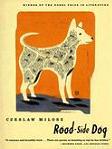 This collection of prose poems seem at times a book of micro essays, at times allegory, and occasionally simply the musings of a profound old man. Though some of the book’s charm is its assertive voice, statements are made that I don’t want to agree with, and am cajoled into. Not heavy on imagery or word play, but Milosz’s musicality is unavoidable, and his meditations on reality are almost palpable. One of my favorites:
This collection of prose poems seem at times a book of micro essays, at times allegory, and occasionally simply the musings of a profound old man. Though some of the book’s charm is its assertive voice, statements are made that I don’t want to agree with, and am cajoled into. Not heavy on imagery or word play, but Milosz’s musicality is unavoidable, and his meditations on reality are almost palpable. One of my favorites: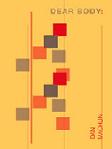 A book in three sections; the first, “Dear Body” is a collection of letters to the body. A wonderful project, existing in dialogue between mind and the body; the theoretical and the physical. At times, the body seems to be his own, as in “if only I could give you the accident/ and you could give me your non-acceptance of the event.” Then there are times, when it seems the letters are in longing, from the body to another, as in “The one thing I’ll never forget about you/ is the one thing I most often forget about you.” The second section, “Antebodies” is also wonderful, and presents a self aware project of poems, all of which are six, seven syllable lines. I love this, as it supports me in my own exploration of self imposed rules for projects, and it is pulled off incredibly well, with a kind of meditative resolve and intellectual playfulness. The third section makes the other two seem tame. The poems begin to move back and forth across the page, most punctuation is dropped, and the mind seems allowed free reign of its territory. Personally, I prefer the first two sections, though I recognize brilliance in all of them. Among my favorites (from antebodies):
A book in three sections; the first, “Dear Body” is a collection of letters to the body. A wonderful project, existing in dialogue between mind and the body; the theoretical and the physical. At times, the body seems to be his own, as in “if only I could give you the accident/ and you could give me your non-acceptance of the event.” Then there are times, when it seems the letters are in longing, from the body to another, as in “The one thing I’ll never forget about you/ is the one thing I most often forget about you.” The second section, “Antebodies” is also wonderful, and presents a self aware project of poems, all of which are six, seven syllable lines. I love this, as it supports me in my own exploration of self imposed rules for projects, and it is pulled off incredibly well, with a kind of meditative resolve and intellectual playfulness. The third section makes the other two seem tame. The poems begin to move back and forth across the page, most punctuation is dropped, and the mind seems allowed free reign of its territory. Personally, I prefer the first two sections, though I recognize brilliance in all of them. Among my favorites (from antebodies):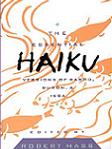 The Essential Haiku is a collection of poems by three Haiku masters, Bashō, Buson and Issa. When Robert Hass selected and translated the poems, he was struck by “how deeply personal” they were because he’d been taught that haiku were never subjective.
The Essential Haiku is a collection of poems by three Haiku masters, Bashō, Buson and Issa. When Robert Hass selected and translated the poems, he was struck by “how deeply personal” they were because he’d been taught that haiku were never subjective.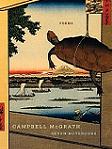 Poet Campbell McGrath learned this lesson well and incorporated both original haiku and Hass’s translations of Bashō into his 2008 collection Seven Notebooks. Just as haiku traditionally refer to a particular season, McGrath’s book is also about the passage of the seasons, and the book represents a year in the life of the poet.
Poet Campbell McGrath learned this lesson well and incorporated both original haiku and Hass’s translations of Bashō into his 2008 collection Seven Notebooks. Just as haiku traditionally refer to a particular season, McGrath’s book is also about the passage of the seasons, and the book represents a year in the life of the poet.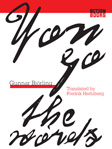 One of the books that has had a profound effect on me is
One of the books that has had a profound effect on me is 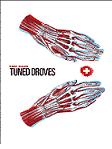 Eric Baus’ Tuned Droves
Eric Baus’ Tuned Droves